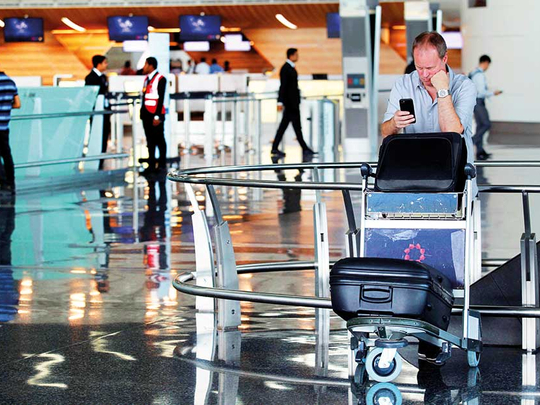
Doha: When 31-year-old Ali Al Mohanadi heard Saudi Arabia, the United Arab Emirates and other nations were cutting ties and severing all transport links with his home country Qatar, he emptied the back of his Land Cruiser SUV and drove to a nearby supermarket.
Tensions had been building for days between Qatar and its powerful Gulf Arab neighbours and Al Mohanadi feared Saudi’s closure of Qatar’s only land border on Monday could lead to price hikes and food shortages in the import-dependent country.
“I bought lots of vegetables, frozen chicken and milk for my children, things I knew would be the first to disappear from the shelves,” said Mohanadi, a former army lieutenant from Qatar’s city of Al Khor. He said he wanted to be prepared but did not feel panic.
Hours later supermarkets in Doha visited by a Reuters reporter had almost run out of dairy products as scores of people waited in checkout lines and stocked up on beans and other staples.
The rift has provoked confusion and anxiety in Qatar, an energy, banking and construction hub, which is home to 2.7 million people — most of them foreigners. Some Qataris were outraged by the state of affairs.
Authorities tried to calm nerves on Wednesday, releasing a video showing a shop with shelves brimming with food and reassuring Qataris — the wealthiest people in the world per capita — that their quality of life would not be hit.
But the row over Qatar’s alleged support for Islamist groups has disrupted many aspects of life.
Thousands of Qataris have been unable to board flights to the UAE, Saudi Arabia and Bahrain, and cut off from relatives in those countries, in a region where cross-border marriages are common and Gulf rulers refer to each other as “brothers”.
In further signs of Qatar’s isolation on Thursday, the United Arab Emirates’ national postal group said it had suspended all services to Qatar and the UAE aviation authority said it had closed air space for traffic to and from Doha.
The fact that Qatar’s Emir, Shaikh Tamim Bin Hamad Al Thani, has yet to speak publicly since ties were cut, has made some Qataris uneasy. Kuwait’s Emir Shaikh Sabah Al Ahmad Al Sabah, who is mediating in the crisis, asked him to postpone a speech to the nation earlier this week to give dialogue efforts a chance.
“Of course we are all waiting for him to speak,” said Sara Al Sulaiti, a Qatari who works in public relations.
For low-income foreign labourers, the biggest concerns are possible food price rises and job cuts if projects are stalled because of construction materials being held up at the Saudi border.
Qatar is home to more than a million migrant labourers from countries including India, Nepal and Bangladesh, many of whom for around 1,000 riyals ($275) a month toil on construction projects including football stadiums and a metro system being built for the 2022 World Cup.
“I have never seen Qatari citizens stocking up on frozen chicken and long-life milks,” said Anup Manoj, an Indian man who works as a cleaner in Doha’s City Centre Mall, where many shops no longer stock milk packaged by Saudi Arabia’s Almarai Co, the most affordable kind of milk in Qatar.
“They have money to stock up. But when they stock up it’s labourers and lower income workers who are going to suffer.”











